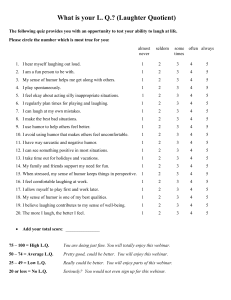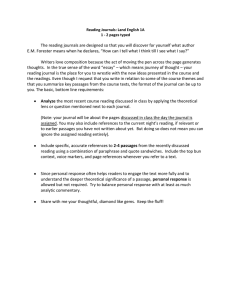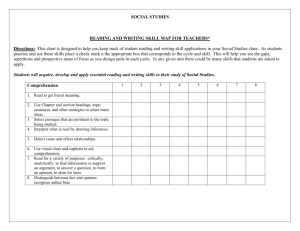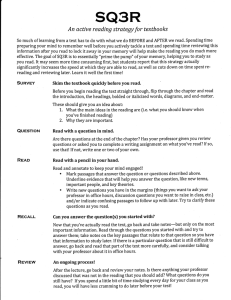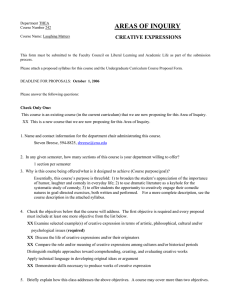Welcome Parents, Family and Friends
advertisement
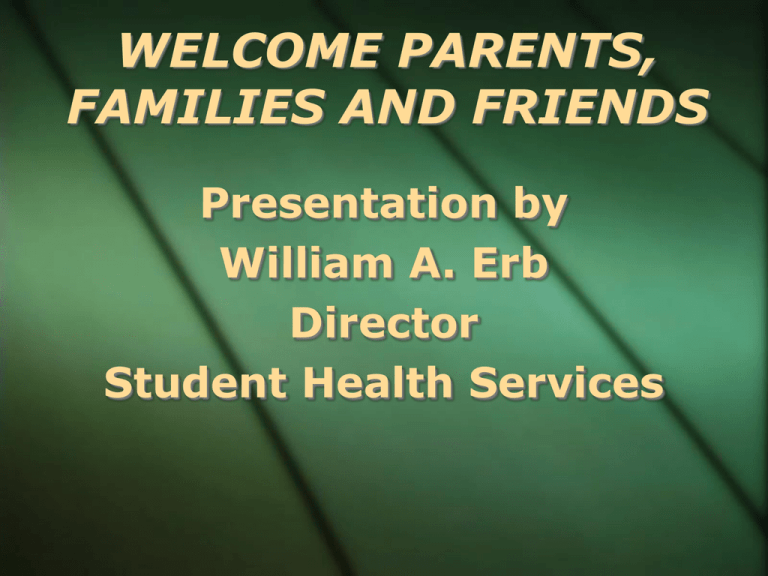
WELCOME PARENTS, FAMILIES AND FRIENDS Presentation by William A. Erb Director Student Health Services Transition To and Through University Beginning at a University is a time of transition Transition to a university setting can be viewed as a process in which physical, spiritual, mental, emotional, social and career/occupational changes occur There are two types of change that face young adults: Rights of Passage and Campus Passages Rights of Passage 1. 2. 3. 4. 5. 6. 7. 8. Leaving Home Establishing Autonomy and Self-sufficiency Achieving Emotional Independence Handling Personal Freedom Developing An Independent Value System Developing Relationship Skills Establishing a Personal Identity Preparing to Enter the Work World Campus Passages 1. Separating From Home 2. Competing In a New Environment 3. Managing Academic Demands 4. Adjusting To Free Time 5. Developing Healthy Social Relationships 6. Selecting A Major Field Of Study 7. Choosing A Healthy Lifestyle The fine art of Letting Go Parenting 101: REMEMBER THIS IS A TRANSITION FOR BOTH YOU AND YOUR CHILD Adjusting to Changes Things to realize… You’re on a new path, too Your child needs different things from you now The key is keeping communication going What Families Might Experience Profound Sense of Loss Extraordinary Sense of Pride Redefined Roles Fear of Failure Joy Trepidation and Worry Resentment Confusion Surprise Conversations You Have to Have Preventing sexual assault Intimacy and self-respect Drinking and drugs Your expectations – academic & otherwise Facebook and MySpace Money Express Unconditional love MAINTAIN A SUPPORTIVE RELATIONSHIP WITH YOUR CHILD Let your child make mistakes and stay calm Listen when the complaints come Instead of trying to fix it convey confidence in their ability MAINTAIN REGULAR CONTACT WITH YOUR CHILD BUT ALSO ALLOW SPACE FOR YOUR CHILD TO APPROACH YOU AVOID “INQUISITOR” MODE QUESTIONS BE REALISTIC AND SPECIFIC WITH YOUR CHILD ABOUT FINANCIAL ISSUES BE REALISTIC ABOUT YOUR CHILD’S ACADEMIC PERFORMANCE REFRAIN FROM BURDENING YOUR CHILD WITH PROBLEMS FROM HOME OVER WHICH THEY HAVE NO CONTROL ENCOURAGE YOUR CHILD TO USE THE RESOURCES OF THE UNIVERSITY TO SOLVE HIS/HER PROBLEMS TRY TO AVOID MAKING MAJOR CHANGES IN THE HOME ENVIRONMENT DURING THE FIRST YEAR ENCOURAGE YOUR CHILD TO GET INVOLVED TRUST YOUR CHILD MAKING MISTAKES IS PART OF THE PROCESS DO YOUR BEST TO DEVELOP AND MAINTAIN YOUR OWN SOCIAL SUPPORT Keep On Laughing! A sense of humor is essential Keep problems in perspective Use humor to defuse conflict and tension Laugh with, not at Remember: These are good problems! Seek support for yourself Give “just enough” to your child Keep laughing!


